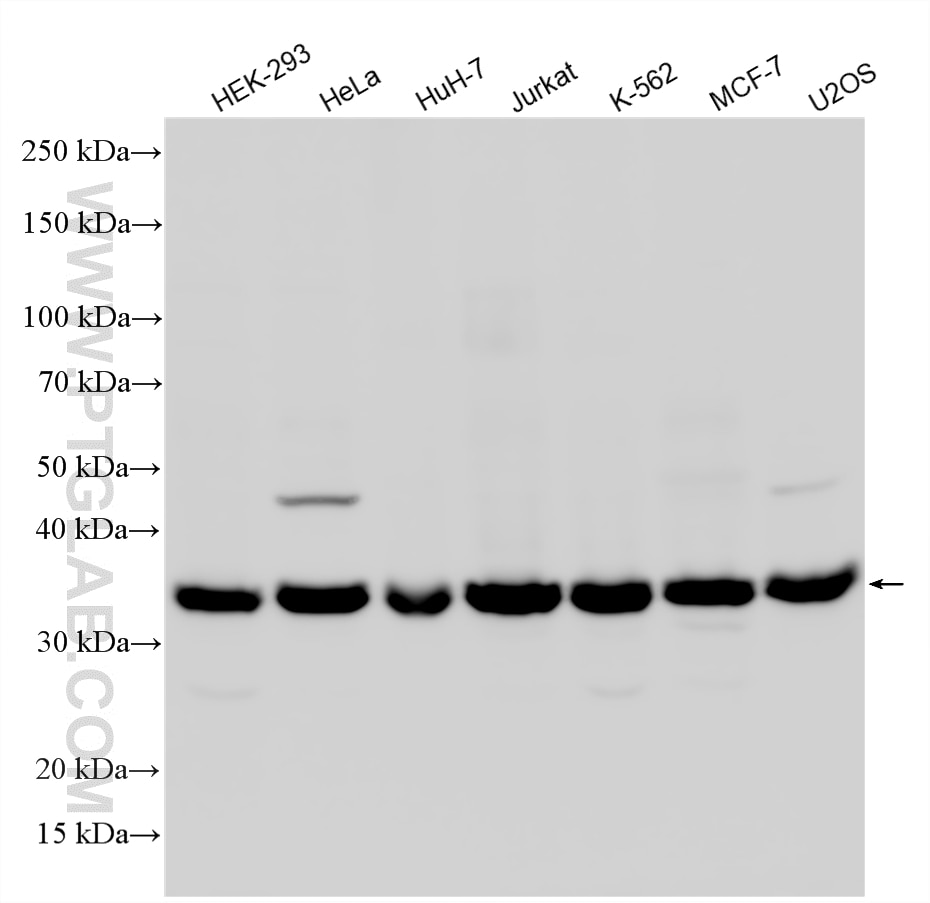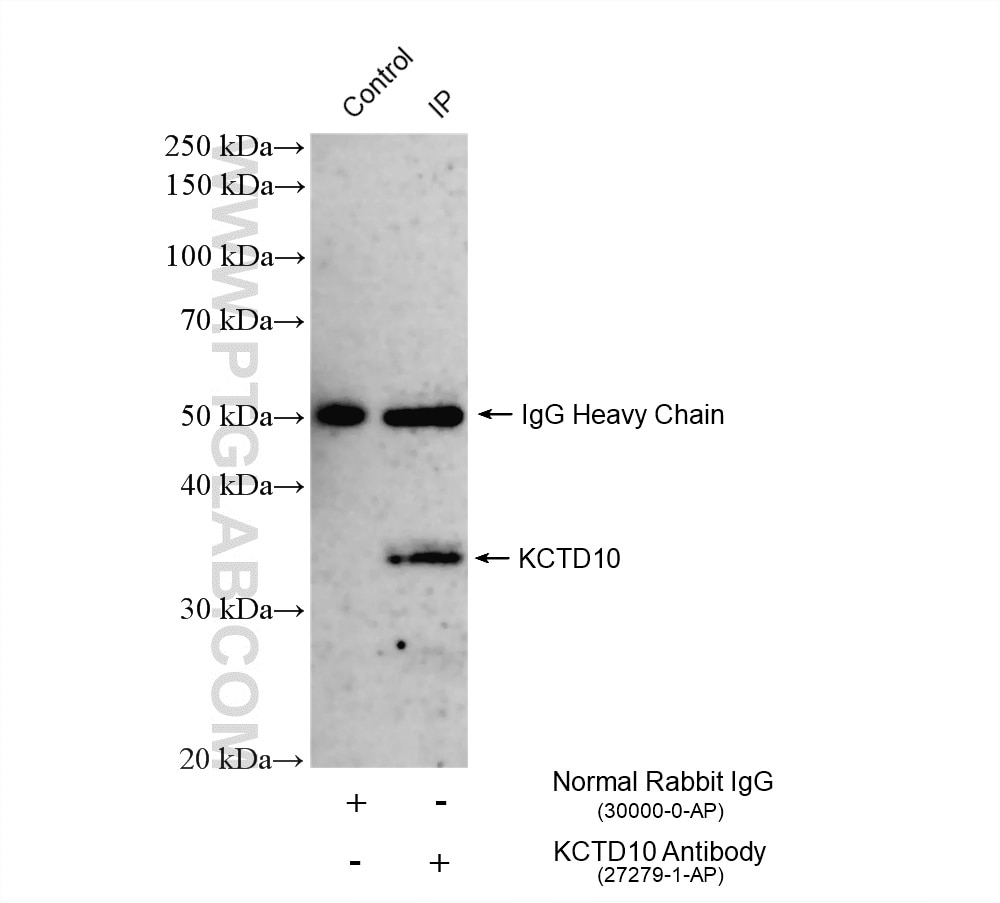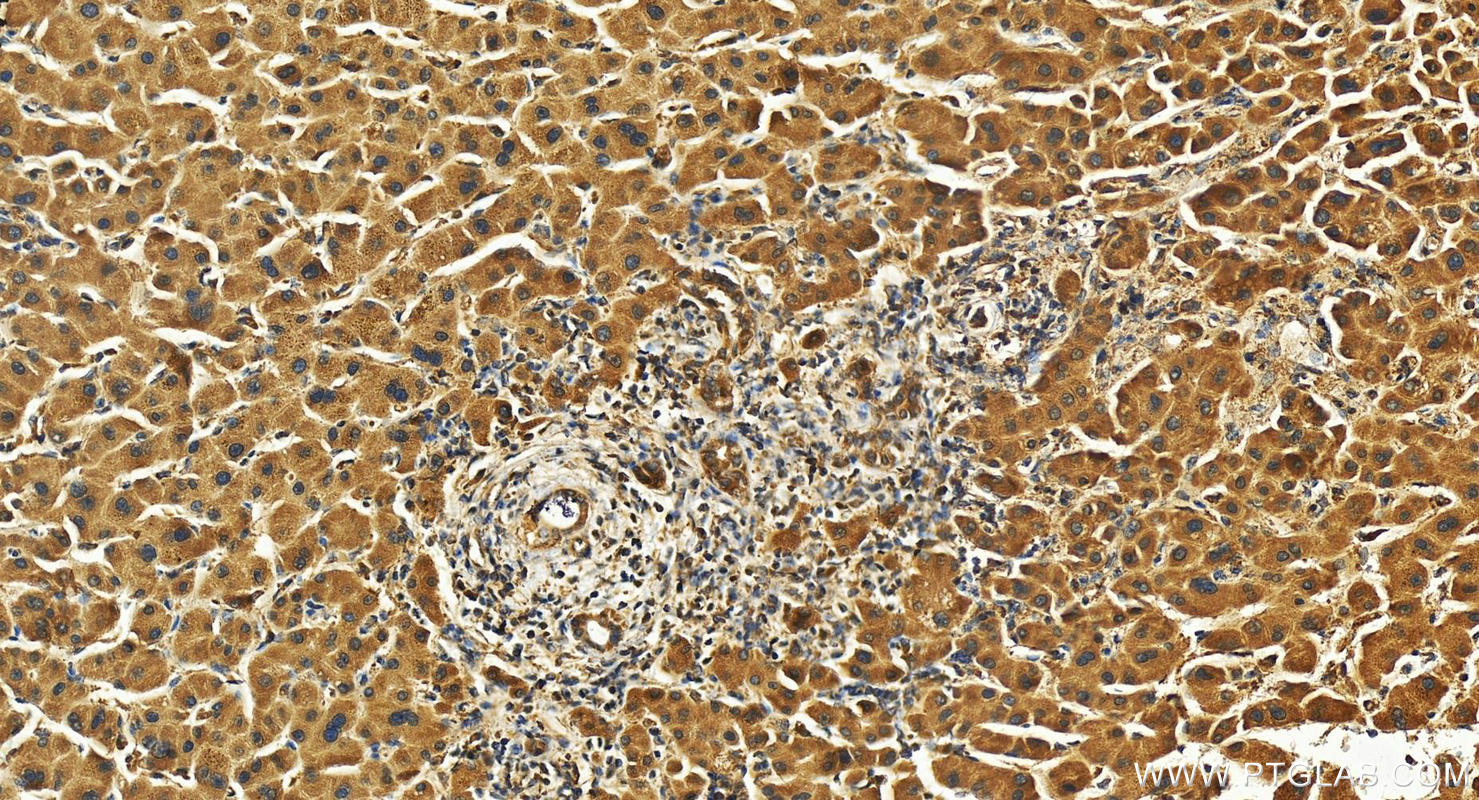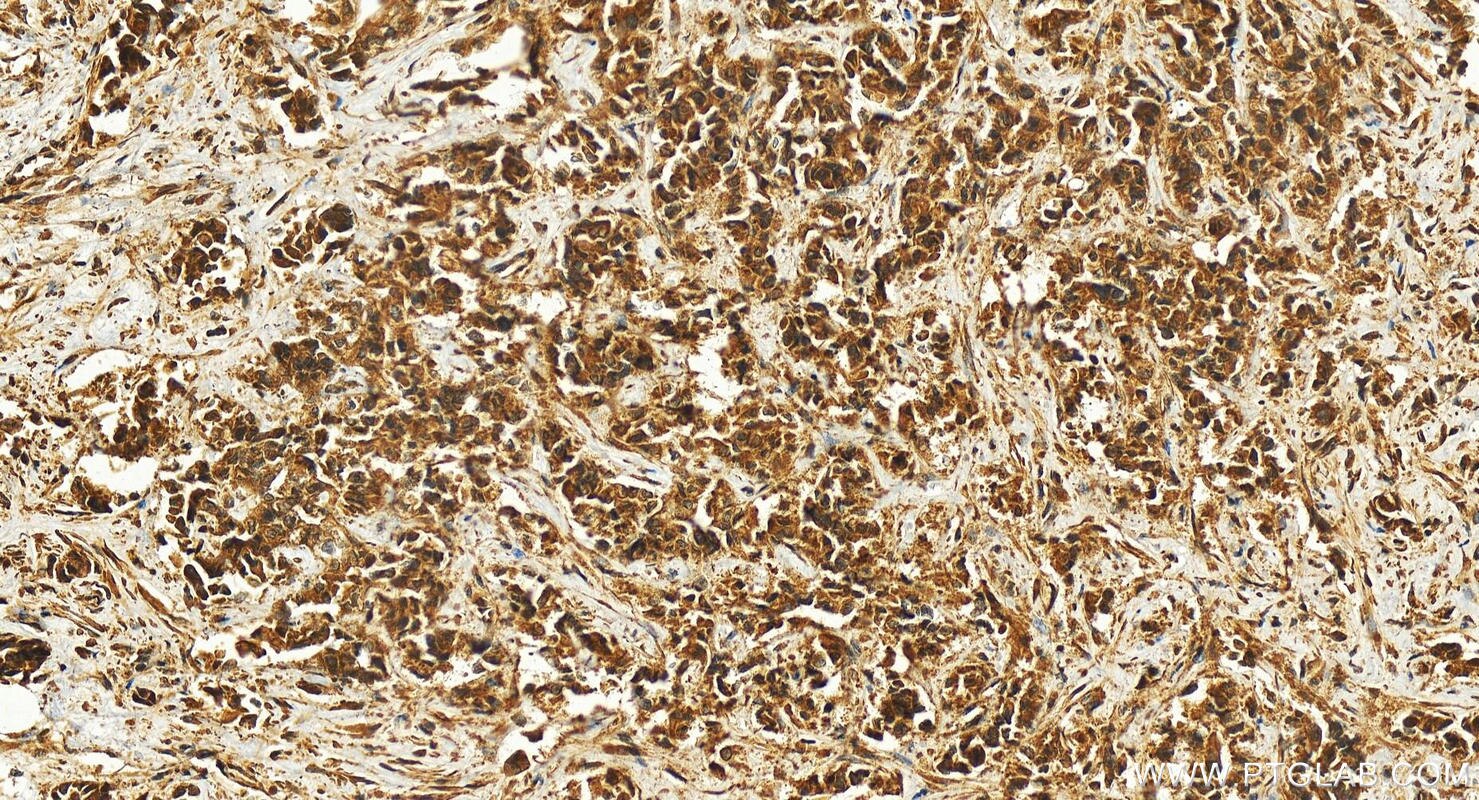- Phare
- Validé par KD/KO
Anticorps Polyclonal de lapin anti-KCTD10
KCTD10 Polyclonal Antibody for WB, IHC, IP, ELISA
Hôte / Isotype
Lapin / IgG
Réactivité testée
Humain et plus (2)
Applications
WB, IHC, IP, ELISA
Conjugaison
Non conjugué
N° de cat : 27279-1-AP
Synonymes
Galerie de données de validation
Applications testées
| Résultats positifs en WB | cellules HEK-293, cellules HeLa, cellules HuH-7, cellules Jurkat, cellules K-562, cellules MCF-7, cellules U2OS |
| Résultats positifs en IP | cellules HuH-7, |
| Résultats positifs en IHC | tissu de cancer du sein humain, tissu d'hyperplasie de la prostate humain il est suggéré de démasquer l'antigène avec un tampon de TE buffer pH 9.0; (*) À défaut, 'le démasquage de l'antigène peut être 'effectué avec un tampon citrate pH 6,0. |
Dilution recommandée
| Application | Dilution |
|---|---|
| Western Blot (WB) | WB : 1:1000-1:4000 |
| Immunoprécipitation (IP) | IP : 0.5-4.0 ug for 1.0-3.0 mg of total protein lysate |
| Immunohistochimie (IHC) | IHC : 1:200-1:800 |
| It is recommended that this reagent should be titrated in each testing system to obtain optimal results. | |
| Sample-dependent, check data in validation data gallery | |
Applications publiées
| KD/KO | See 3 publications below |
| WB | See 4 publications below |
Informations sur le produit
27279-1-AP cible KCTD10 dans les applications de WB, IHC, IP, ELISA et montre une réactivité avec des échantillons Humain
| Réactivité | Humain |
| Réactivité citée | rat, Humain, souris |
| Hôte / Isotype | Lapin / IgG |
| Clonalité | Polyclonal |
| Type | Anticorps |
| Immunogène | KCTD10 Protéine recombinante Ag25971 |
| Nom complet | potassium channel tetramerisation domain containing 10 |
| Masse moléculaire calculée | 313 aa, 35 kDa |
| Poids moléculaire observé | 35 kDa |
| Numéro d’acquisition GenBank | BC040062 |
| Symbole du gène | KCTD10 |
| Identification du gène (NCBI) | 83892 |
| Conjugaison | Non conjugué |
| Forme | Liquide |
| Méthode de purification | Purification par affinité contre l'antigène |
| Tampon de stockage | PBS with 0.02% sodium azide and 50% glycerol |
| Conditions de stockage | Stocker à -20°C. Stable pendant un an après l'expédition. L'aliquotage n'est pas nécessaire pour le stockage à -20oC Les 20ul contiennent 0,1% de BSA. |
Informations générales
KCTD10 is a member of the polymerase delta-interacting protein 1 (PDIP1) gene family, which consists of 3 members, PDIP1, KCTD10 and TNFAIP1. KCTD10 is inducible by TNF-α, interacts with PCNA and the small subunit (p50) of DNA polymerase δ. Previous reports have shown that KCTD10 is essential for mammalian development. Further functional studies showed that KCTD10 interacts with proliferating cell nuclear antigen (PCNA) and plays an important role in DNA synthesis.
Protocole
| Product Specific Protocols | |
|---|---|
| WB protocol for KCTD10 antibody 27279-1-AP | Download protocol |
| IHC protocol for KCTD10 antibody 27279-1-AP | Download protocol |
| IP protocol for KCTD10 antibody 27279-1-AP | Download protocol |
| Standard Protocols | |
|---|---|
| Click here to view our Standard Protocols |
Publications
| Species | Application | Title |
|---|---|---|
Nat Commun Regulation of TRIF-mediated innate immune response by K27-linked polyubiquitination and deubiquitination.
| ||
Front Cell Dev Biol Cullin3-TNFAIP1 E3 Ligase Controls Inflammatory Response in Hepatocellular Carcinoma Cells via Ubiquitination of RhoB.
| ||
Genet Res (Camb) Inhibition of KCTD10 Affects Diabetic Retinopathy Progression by Reducing VEGF and Affecting Angiogenesis
|
Avis
The reviews below have been submitted by verified Proteintech customers who received an incentive for providing their feedback.
FH Vasu (Verified Customer) (09-12-2025) | This antibody is suitable for few applications like immunofluroscence and Immunoblotting but not for other applications like Chip and flow cytometry and other applications
|
FH Vasudevarao (Verified Customer) (09-04-2025) | This antibody works very well for immunoblotting and IHC at the recommended dilutions
|









